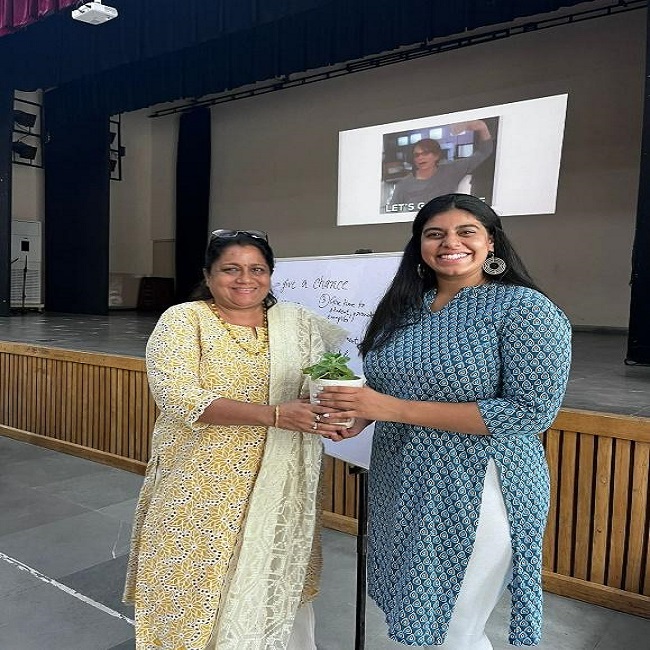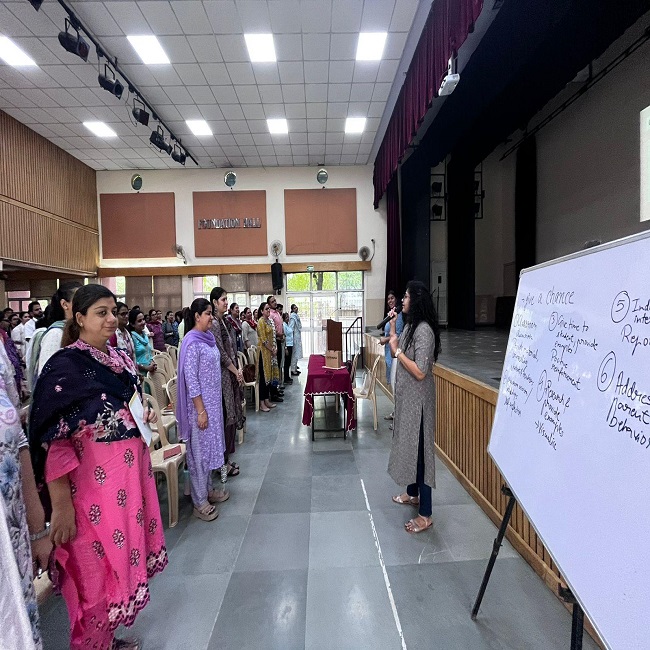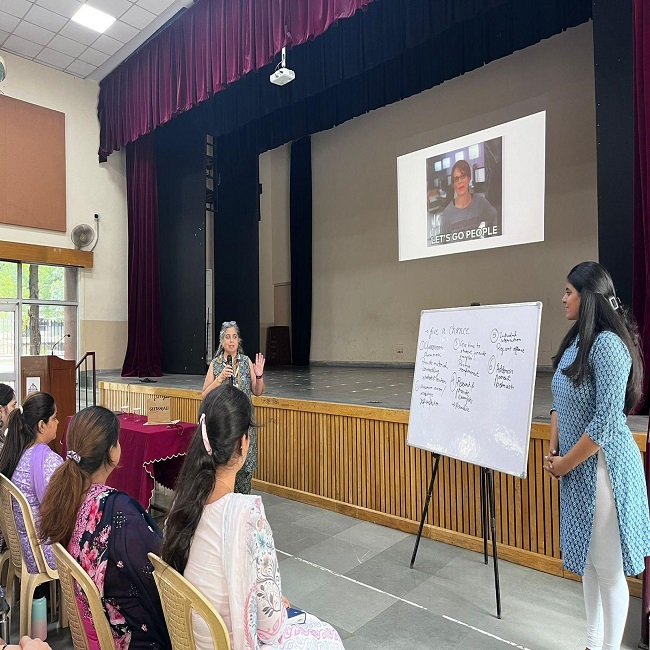Teacher workshop on Comprehensive Sex Education
A workshop centred around 'Comprehensive Sex Education' for teachers took place on June 26, 2024, organised by Ms Meghna Joshi, school counsellor, in collaboration with the Pratisandhi Foundation. The workshop was led by Ms Niyati Sharma, Founder, and Ms Divanshi Jhalundwala also of the same foundation. The Foundation is a non-profit organisation dedicated to empowering the youth through sexuality education and has conducted extensive workshops across various institutions, including rural areas and private schools nationwide.
The workshop commenced with an ice-breaking activity prompting teachers to reflect on their experiences as educators and the pivotal role they play in the students' emotional development. Highlighting the significance of educators in the student emotional landscape, the facilitators emphasised Comprehensive Sex Education as an essential component of school curricula. This approach aims to foster a holistic understanding of sexuality encompassing emotional, cognitive, and social dimensions alongside reproductive health.
In the context of India, comprehensive sex education encompasses sexuality, sexual behavior, relationships, values, rights, culture, gender, violence prevention, personal safety, human body development, and skills for overall health and well being. Through various activities, the workshop encouraged teachers to confront their personal biases and ingrained perceptions regarding gender and sexuality. It also focused on gender sensitisation by introducing diverse gender identities.
Furthermore, discussions delved into the physical and psychological changes experienced by children during puberty, and how societal influences can either support healthy sexual development or perpetuate feelings of guilt and shame.
To address the challenges that educators face when students navigate dating, exploring identities and negotiating cultural norms, the facilitators proposed several strategies aa below.
1. Applying the Pygmalion Effect, where higher expectations from teachers lead to increased student performance and achievement.
2. Engaging in active self-reflection to identify and address personal biases.
3. Cultivating curiosity, rapport-building, and embracing differences rather than othering them.
4. Teaching curricula while being mindful of gender biases.
5. Using inclusive language, such as addressing students collectively rather than by gender.
6. Promoting a culture of consent from an early age, emphasising respect for personal boundaries and choices.
The workshop concluded with Principal Ms Tania Joshi affirming the critical importance of comprehensive sex education in schools today. Vice Principal Dr Anu Singh and Ms. Sheeja Menon ( Headmistress – The Indian School-Second Shift) offered the vote of thanks and a potted plant each nurtures in the School nursery.















